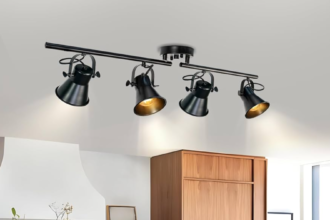How to buy Bulgarian properties? How long does the paperwork take? Who is responsible for the transparency of transactions? Read useful tips for real estate buyers in Bulgaria.
Rights and obligations of foreign buyers
In Bulgaria, foreigners can freely purchase residential and commercial real estate. There are no legal restrictions for foreign buyers. But a foreigner cannot easily buy lands in Bulgaria, unless they are an EU citizen. For that, buyers need to open a company in Bulgaria.
Owning real estate in Bulgaria provides visa benefits. The owner has the right to a multi-visa for one year or more with a permitted stay in Bulgaria of 180 days per year.
The purchase of the local real estate for €310,000 gives the right to obtain a Bulgarian residence permit.
Any property owner in Bulgaria is obliged to register for tax within two months from the date of purchase and pay property tax and utility tax.
Getting a Mortgage in Bulgaria
In recent years, Bulgarian banks have been increasingly offering loans for the purchase of real estate. You can get a mortgage without being in Bulgaria. In some banks, the presence of a notarized authorized representative who issues a loan is sufficient. Although, of course, it is easier to apply for a loan in person.
For citizens of the country, a mortgage on real estate in Bulgaria is issued on more favorable terms than for foreigners – interest rates are slightly lower and the requirements are more lenient. But even a foreigner can find a bank with the most favorable credit conditions for him. Mortgage programs are similar everywhere, but the loan rates are slightly different.
By the way!
Bulgaria is famous for its affordable resort real estate. You can find a lot of really attractive offers on the sea shore from €8,000 in Sunny Beach, Burgas or Varna. If you are more into colder seasons, find great options in the mountain resorts like Bansko and Banya with properties from €20,000.
How to Buy Bulgarian Property as a Foreigner
Step 1. Reserve and Check the Property
Opening a Bank Account
Buyers open an account in a Bulgarian bank after selecting the property. They need it to make payments and pay state taxes, duties, and utilities. Sometimes the deposit can be paid in cash since the amount is usually small.
Paying the Deposit
Once you have chosen a specific property, it is necessary to reserve it by making a deposit. Usually, it is up to €3,000 in Bulgaria. That amount as well as the main parameters of the deal are specified in the booking agreement: terms and conditions, the property information, and information about the realtor or developer.
A preliminary contract is made at the request of the parties. It reflects all the parameters of the deal: the cost of the property, the seller’s bank details, terms and amounts of payments, a description of the property itself, the rights and obligations of the parties, and sanctions in case of violation of obligations.
Step 2. Conclude a Contract
The buyer is required only to provide their ID in person according to Bulgarian law. But the seller collects and provides the notary with a set of documents for the deal:
- A certificate of estimated value issued by the municipality. The document can only be obtained if the property has no debt.
- A certificate from the cadastral service.
- Notarial act of the seller.
- Declaration of marital status.
- A certificate of absence of tax debts.
- A certificate of absence of encumbrances (for example, loans).
Please note! A good real estate agent always checks the whole status of a property in advance to protect the client and help to make a successful deal. This once again confirms the importance of choosing a good mediator.
The buyer and the seller sign the contract in the presence of a notary and an interpreter. The notary checks the current property status and purity of the deal based on the extract from a register of property rights and other documents. They confirm that the property belongs to the seller, attest signatures of the parties, and the deal itself as a legal act. The notarial act is drawn up in Bulgarian only. The notary acts as the guarantor of the agreement.
Step 3. Final Settlement
The remaining amount of the cost or one-time full payment is usually made immediately after the notary’s certificate is signed in the presence of a notary. Money is transferred via bank transfer to the seller’s account. The seller then confirms that they have received the full amount, and the notary adds the necessary data to the real estate register.
It is often possible to pay for the property in cash. The standard transaction amount is about €30000, therefore as a buyer, you can pay without using bank transfers. Especially if the buyer agrees on an instalment plan. You can legally bring to the country in cash an amount that covers the property cost in two-three back and forth trips.
The buyer also pays the transfer tax, notary fees, and state duty. The services of a real estate agent in Bulgaria are usually free for the buyer.
Step 4. Register a New Owner
The notary sends the documents to the district court to register the transfer of ownership. The new data is added to the state register there. The buyer receives a certificate of ownership from the notary office within a week after the conclusion of the deal.
The final stage of registration of documents is the registration of real estate in the Statistical Office of Bulgaria (Регистър Булстат) and the tax inspection. That takes about two months.
Hidden expenses of property purchase in Bulgaria
You may be scared of how much you should pay for your interest in a foreign realty. But it’s not that big to worry about:
- The notary’s fee depends on the price of your property. It rarely exceeds 1%.
- The local real estate transfer tax is paid to the municipality of your property’s location. It is about 1.5-3.5% of the property’s cost in the notary act.
- State fees for real estate registration take about 0.1% of the price of your property.
- The fee for a licensed translation is €50-60.
- After-sale registration of real estate. Takes up to €250, depending on the agency. Theoretically, you can do it yourself, but it is problematic without language. That is why a real estate employee usually is involved in registration.
How Many Taxes Will You Pay for Bulgarian Realty?
Just like everywhere else in Europe, you have to pay property taxes annually, regardless of your citizenship. There are two property taxes in Bulgaria: real estate tax (Данък имот) and utility tax (Такса битови отпадъци).
Real Estate Tax
The real estate tax is usually 0.15% of the value of the tax assessment of the object for individuals. For legal entities – 0.15% of the book value of the real estate.
Utility Tax
Depending on the municipality, utility tax is from 0.1% to 0.3% of the reported value. It is, in fact, a fee for garbage collection. Its size depends on the cost of the property. The percentage also depends on the prestige and traffic congestion of the area.
For example, in the center of Sofia, it is 1%, and in the suburbs, it is less than 0.5%. The situation is similar across the country. The further the property is from a major city, the lower the tax.
If you pay property taxes and garbage collection fees in one payment until March 30, you will get a 5% discount. But you can also pay in stages over a year, in four equal parts. A discount is not available in such a case.
Either management companies or realtors who carried out the acquisition procedure can take over the management of these processes, that is, pay taxes and utility payments for the owner, if the buyer uses their services.
FAQs
What are the pitfalls of buying property in Bulgaria?
- A foreigner from non-EU countries must open a legal entity to buy a land plot in Bulgaria.
Can anyone buy a house in Bulgaria?
- There are no legal restrictions for foreign buyers.
Can I get residency in Bulgaria if I buy a house?
- Yes, if it costs more than €310,000.
Is Bulgaria a good place to buy a property?
- It has affordable resorts and a good climate. So, yes.















